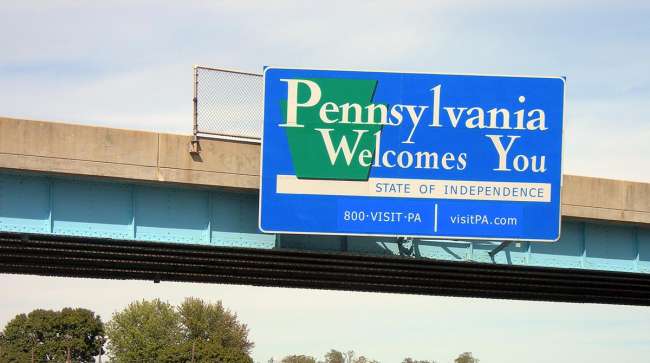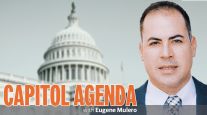Pennsylvania, Delaware Join Study of East Coast Road Usage Tax

Pennsylvania motorists will have an opportunity to participate in a study exploring the potential impact of a road usage tax on the East Coast.
PennDOT has teamed up with the I-95 Corridor Coalition and the Delaware Department of Transportation to test how to administer a tax or fee based on the amount of miles a motorist drives.
As cars become more fuel efficient, electric and even autonomous, revenue collected from taxes on gasoline — a principal source of transportation funding — may not keep up with funding needs for maintaining roads, bridges and other infrastructure, said Patricia Hendren, executive director of the I-95 Corridor Coalition. A road usage tax would charge drivers for the miles driven, not for the gas purchased.
“It’s a wholesale change on how we fund the transportation system,” Hendren said. “We are exploring whether or not a usage fee is an option.”
Enacting a road usage tax was discussed by state legislators as they debated Act 89, which passed in 2013 to fund transportation projects. PennDOT spokesman Rich Kirkpatrick said the agency wasn’t aware of any pending legislation in Harrisburg to enact such a tax or fee.
Hendren said the coalition is not endorsing or lobbying for usage taxes or fees. Rather, it wants to study the unique challenges they could present on the East Coast. I-95 stretches along the East Coast from Maine to Florida. The coalition includes representatives from state and local transportation departments and authorities in 17 states and Washington, D.C., through which the interstate runs.
“We have to think about what happens when a person drives across multiple states or what happens when someone drives on a toll road,” Hendren said. “It’s a unique challenge that we have on the East Coast.”
The few projects that have studied mileage-based usage taxes have been in California, Oregon and Washington. This will be the first East Coast study.
The coalition received a $1.16 million grant for the project. It hopes to recruit 50 drivers from both Pennsylvania and Delaware. Hendren said volunteers will track their mileage in a variety of ways, using everything from a pencil and paper to GPS tracking and a device that plugs into their car. They will not be charged a per-mile fee during the test.
The coalition hopes to start the test in 2018 or 2019. Hendren said many details are still being worked out.
“We are participating with the coalition to understand the issues that may arise in the event the federal government decides on a replacement for motor fuel taxes,” Rich Kirkpatrick told the Tribune-Review in an email.
Pennsylvania receives about $1.6 billion a year from the federal government in federal highway and bridge funding, Kirkpatrick said.
Distributed by Tribune Content Agency, LLC




